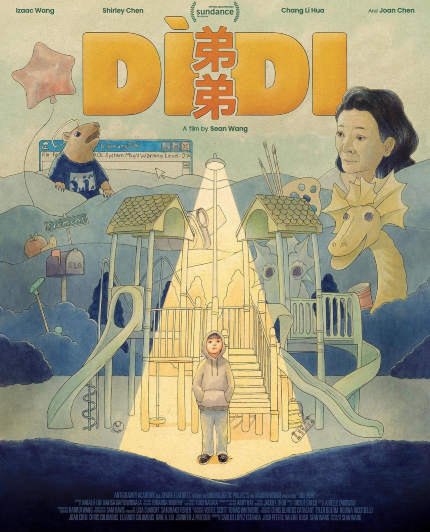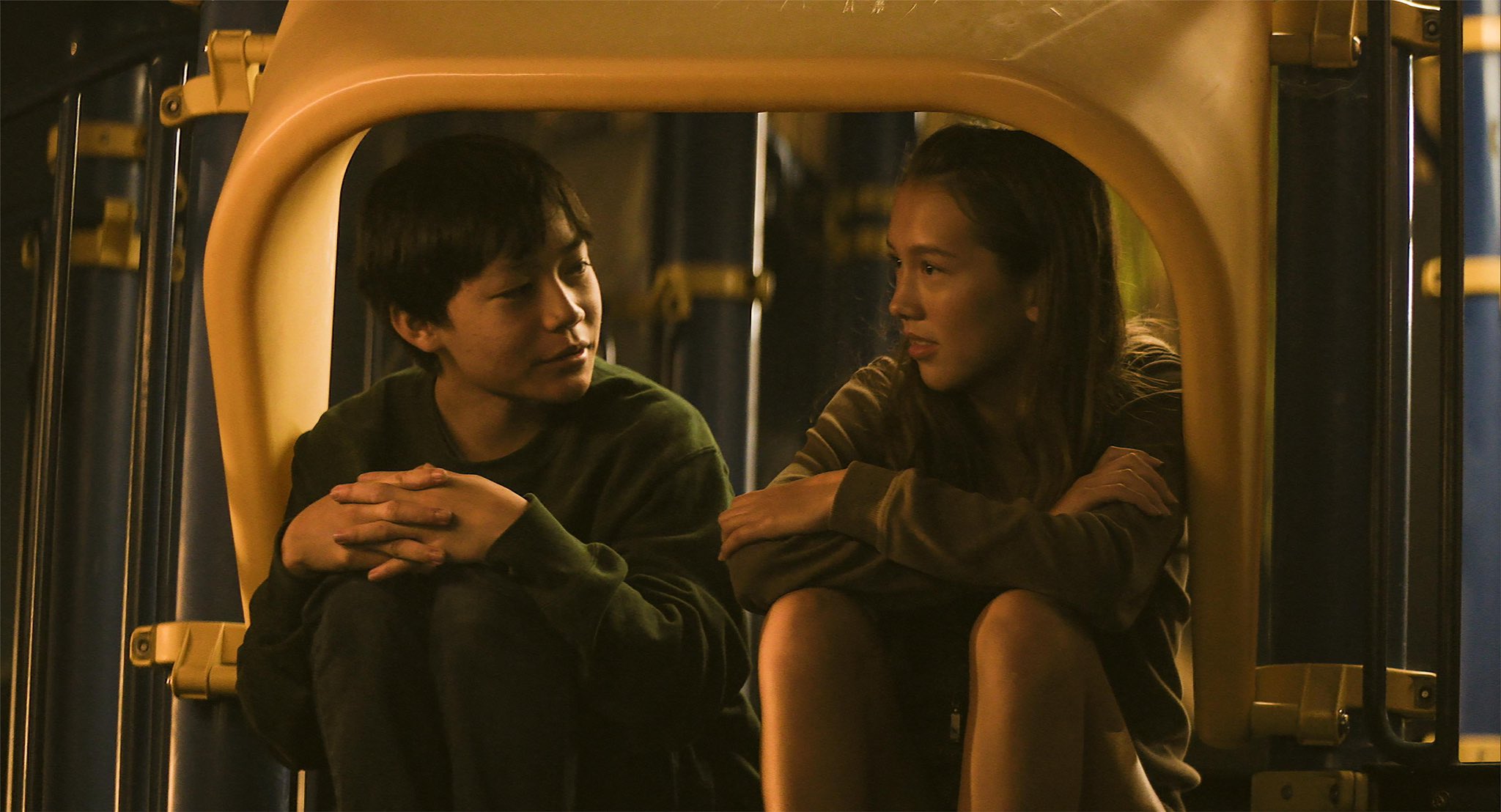DIDI Review: Coming-of-Age Tale Moves, Resonates, Illuminates
Written and directed by Sean Wang, the film stars Izaac Wang, Joan Chen, Shirley Chen, and Chang Li Hua.

In writer-director Sean Wang’s brilliant feature-length debut, Didi (弟弟), his brooding, self-centered teen protagonist, Chris Wang (Izaac Wang), repeatedly borrows his older sister Vivian’s (Shirley Chen) college hoodie.
It becomes a sharp point of conflict — one among many — between the semi-estranged siblings, each entering new phases of their lives, Chris starting high school as a freshman and his sister college at UC San Diego in Southern California.
Filled with onscreen references to nascent Internet tools (Google, YouTube, MySpace, and FaceBook, among many others), along with period-specific musical cues, language affectations, and attitudes, Wang’s faultless recreation of the era feels not just “real,” but “really real,” reflective of a lived, lived-in experience (i.e., his own). It’s also clear-eyed, often looking at Chris, selfish, slightly self-entitled, and self-indulgent, through a critical lens.
Chris might be the hero of his own story, but from the outside in, he’s anything but, incapable of the empathy and compassion necessary to see others, including Vivian and his Taiwan-born mother, Chungsing (Joan Chen), as anything except as minor obstacles to overcome or major embarrassments to avoid.
Chris communicates with his childhood friends via AIM messenger, flip-phones, and on occasion, in person when they hang out. Shyer than his friends and less likely to take on the verbal tics and mannerisms they’ve adopted, Chris and the choices he makes over several weeks in July and August before he heads to high school come to represent both the universal aspects inherent in coming-of-age stories, but also their granular specificity. The latter makes Didi all the more worthwhile as a moviegoing experience.
Like so much else in Didi, Chris’s semi-permanent borrowing of his sister’s hoodie, however, seems like one more incidental detail key to Wang’s recreation of Northern California suburban life, but it’s more than that: It serves as a constant, possibly painful reminder, of his sister’s departure, of the unspoken feelings of affection for each other they refuse to acknowledge, but it also represents something aspirational for Chris. If Vivian somehow managed to survive high school and living with their judgmental, demanding mother and his paternal grandmother, Nai Nai (Zhang Li Hua), then Chris can too.
That Chris often pulls the hoodie over his head also suggests the deep discomfort he feels with himself and the shifting, ultimately unfulfilling identities he adopts and sheds like old clothes: the identity, “Wang Wang,” he shares with his overly assertive, boisterous grade-school friends; his online identity where he can be more assertive; his Chinese-American identity as a son, a grandson, and a brother; the in-house videographer documenting the exploits for a group of older skate kids, who temporarily adopt him as “Asian Chris”; or later, when reflecting the internalized racism and xenophobia typical of non-Caucasian immigrant children, “Half-Asian Chris” (both his parents are Taiwanese).
As a teen-centered, coming-of-age story, Didi hits some familiar beats, up to and including Chris’s infatuation with another teen, Madi (Mahaela Park), that predictably goes awry. Still, Didi also hits some unfamiliar, refreshingly novel ones, like Chris finding himself taking PSAT prep classes inside a garage; his grandmother’s failing health that faintly echos Lee Isaac Chung's semi-autobiographical drama, Minari; and most importantly, the throughline involving Chris’s difficult, fraught relationship with his mother. This failed artist still dreams, however unrealistically, of receiving some acknowledgment for her work.
With his father always gone, working in Taiwan and sending the family money regularly, that leaves a conspicuous absence in Chris’s life, one Chungsing can’t fill, but still one she attempts to fulfill. Conflict seems inevitable between Chungsing’s traditional, non-American ways and Chris’s new-school ones.
Chris's ongoing frustration with his home life finds expression in his casual rejection of his mother’s cooking or the arguments he starts with Vivian at the dinner table. Chris’s surly, rebellious attitude, in turn, leads to a cringe-inducing moment that reveals the fissures in Chungsing’s relationship with her mother-in-law, one that occasionally breaks out in a cold war between the two women.
If the level of exacting detail and texture elevates Didi above similar coming-of-age stories, a uniformly strong, exceptional cast elevates Didi even further. As Chris, Isaac Wang delivers an unapologetic, fearless performance, capturing his character’s mercurial moods with a realism and naturalism that borders on the devastating.
Joan Chen (Saving Face, Lust, Caution, The Last Emperor) doesn’t necessarily surprise as Chungsing, but that’s only because she’s been so good for so long that it’s easy to take her for granted. Her deeply affecting, multi-layered performance deserves every accolade that in a just world will come her way.
The film is now playing in New York and Los Angeles. It expands to additional cities Friday, August 2, and goes nationwide on Friday, August 16. Visit the official Focus Features site for locations and showtimes.
D�di
Director(s)
- Sean Wang
Writer(s)
- Sean Wang
Cast
- Izaac Wang
- Joan Chen
- Shirley Chen









